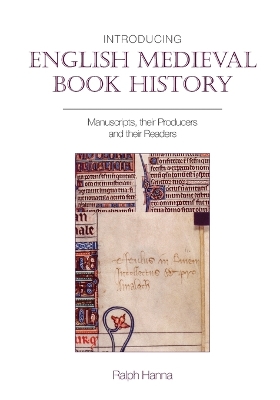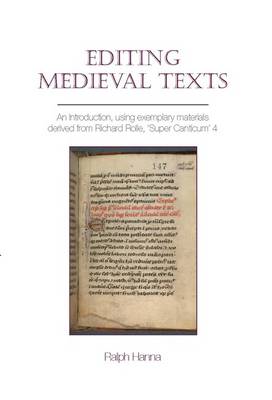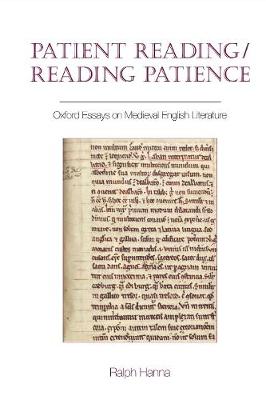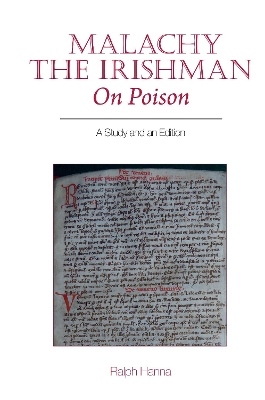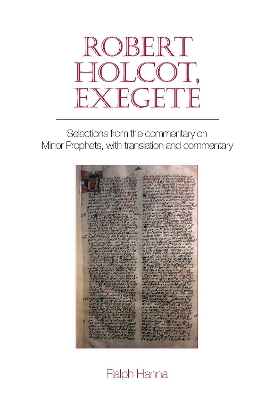Exeter Medieval Texts and Studies
5 total works
In the humane sciences, the need for texts is ubiquitous; they provide the regular objects of study. But far less prevalent than editions is any discussion of the premises underlying these objects, or the mechanisms by which they have been constructed. This volume takes up both challenges. First, in a preliminary chapter, it discusses what is at stake in any edition one might read; the persistent argument is that these represent products of modern scholarly decision-making, the imposition of various kinds of unity on the extremely diverse evidence medieval books offer for any literary work. This chapter also explains broadly various options for the presentation of texts - and the difficulties inherent in them all. The remainder of the volume is given over to a step-by-step guide to the process of editing (and eventually to a finished presentation of) a heretofore unpublished medieval text. The discussion seeks to exemplify the decisions editors routinely face, and to suggest ways of addressing them.
use in sermones ad status, he applies to vicious and virtuous
activities, and perhaps particularly ones peculiar to Ireland.
Although Malachy the Irishman and his On Poison have received only a handful of scholarly notices in the last century, in the later Middle Ages, his was a widely known book. A lengthy introduction presents evidence for the wide circulation of Malachy's text and the little that is known of the author. It further addresses literary issues: the work's genre, hovering between a treatise on vices and virtues, a compendium of scientific information, and a handbook for preachers; Malachy's efforts at compilation of authoritative materials; and a preliminary account of some early users, including William Langland and Robert Holcot. The introduction concludes by examining the insuperable difficulties involved in editing the text. The centre of the volume presents an annotated preliminary text and translation, together with some account of early interpolations the text received. The volume concludes with three indexes, one with all biblical citations, one of all Malachy's other citations, and a third of Malachy's similitudines, his moralised scientific information.
Robert Holcot (d. 1349) was a Dominican friar, most prominently connected with the convent in Oxford where he became a Doctor of Theology. Holcot is perhaps most famous today, following an important discussion by Heiko Obermann in the 1960s, for his 'semi-Pelagian' theological views. In contrast to traditional Augustinianism, he believed that God granted salvation to individuals on the basis of 'bonum quod in se est', that is, on the basis of an individual's intention to do good, rather than any achievement. While historians of theology
know Holcot in these terms, his wide medieval reputation was rather different. Holcot was read all over Europe as an exegete, an explicator of biblical texts, especially the Old Testament sapiential books.
This volume presents a selection, nearly a quarter of the whole, from Holcot's readings in the minor prophets, originally delivered in the 1330s as lectures in Oxford's Dominican studium. In a commentary appended to the text, it uses these selections to offer a view of exegesis, and of Holcot's strategies, that differs from customary scholarship on the topic. The commentary attempts to clarify the relation between Holcot's usually tacit discussion (a feature perhaps driven by the fact that the received text represents a reportatio or outline, not a stenographic transcription) and the biblical text at hand. It further addresses some argumentative features, principally Holcot's use of narrative and of imagistic distinctiones. The volume is fully annotated, with a facing-page translation, numerous references to analogous discussions elsewhere in Holcot (including his classic Super Sapientiam Salamonis), and full indexes of Holcot's biblical references, his parallel treatments, and his sources.
